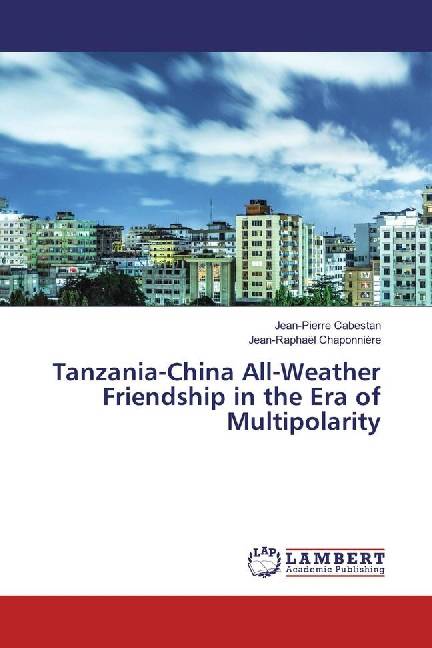
Bedankt voor het vertrouwen het afgelopen jaar! Om jou te bedanken bieden we GRATIS verzending (in België) aan op alles gedurende de hele maand januari.
- Afhalen na 1 uur in een winkel met voorraad
- In januari gratis thuislevering in België
- Ruim aanbod met 7 miljoen producten
Bedankt voor het vertrouwen het afgelopen jaar! Om jou te bedanken bieden we GRATIS verzending (in België) aan op alles gedurende de hele maand januari.
- Afhalen na 1 uur in een winkel met voorraad
- In januari gratis thuislevering in België
- Ruim aanbod met 7 miljoen producten
Zoeken
Tanzania-China All-Weather Friendship in the Era of Multipolarity
Jean-Pierre Cabestan, Jean-Raphaël Chaponnière
Paperback | Engels
€ 35,45
+ 70 punten
Omschrijving
How close is the Tanzanian-Chinese partnership today? Bi-lateral trade and Chinese economic activity in Tanzania today is far more significant than in the 1970s; China's "no strings attached" policy is still attractive and political solidarities and military co-operation have remained relatively strong. However, this bi-lateral relationship does not have the importance, nor the exclusiveness it enjoyed in the heydays of socialism. Today, China must compete economically, politically and culturally with the activism and soft power of a larger group of countries, particularly the United States and other emerging nations. Although both in Dar es Salaam and in Beijing this relationship is still presented as "special", it has lost the structural role that it had until the late 1970s in shaping Sino-African relations. Instead, particularly since the mid-2000s, it is rather the growing Sino-American, Sino-Western and South-South competition in Africa that has structured Tanzania's foreign policy, convincing Tanzania to adopt what we would call a "mild hedging strategy" towards China and helping it, at least to some extent, to better defend its own interests.
Specificaties
Betrokkenen
- Auteur(s):
- Uitgeverij:
Inhoud
- Aantal bladzijden:
- 68
- Taal:
- Engels
Eigenschappen
- Productcode (EAN):
- 9783330077447
- Uitvoering:
- Paperback
- Afmetingen:
- 150 mm x 220 mm

Alleen bij Standaard Boekhandel
+ 70 punten op je klantenkaart van Standaard Boekhandel
Beoordelingen
We publiceren alleen reviews die voldoen aan de voorwaarden voor reviews. Bekijk onze voorwaarden voor reviews.









